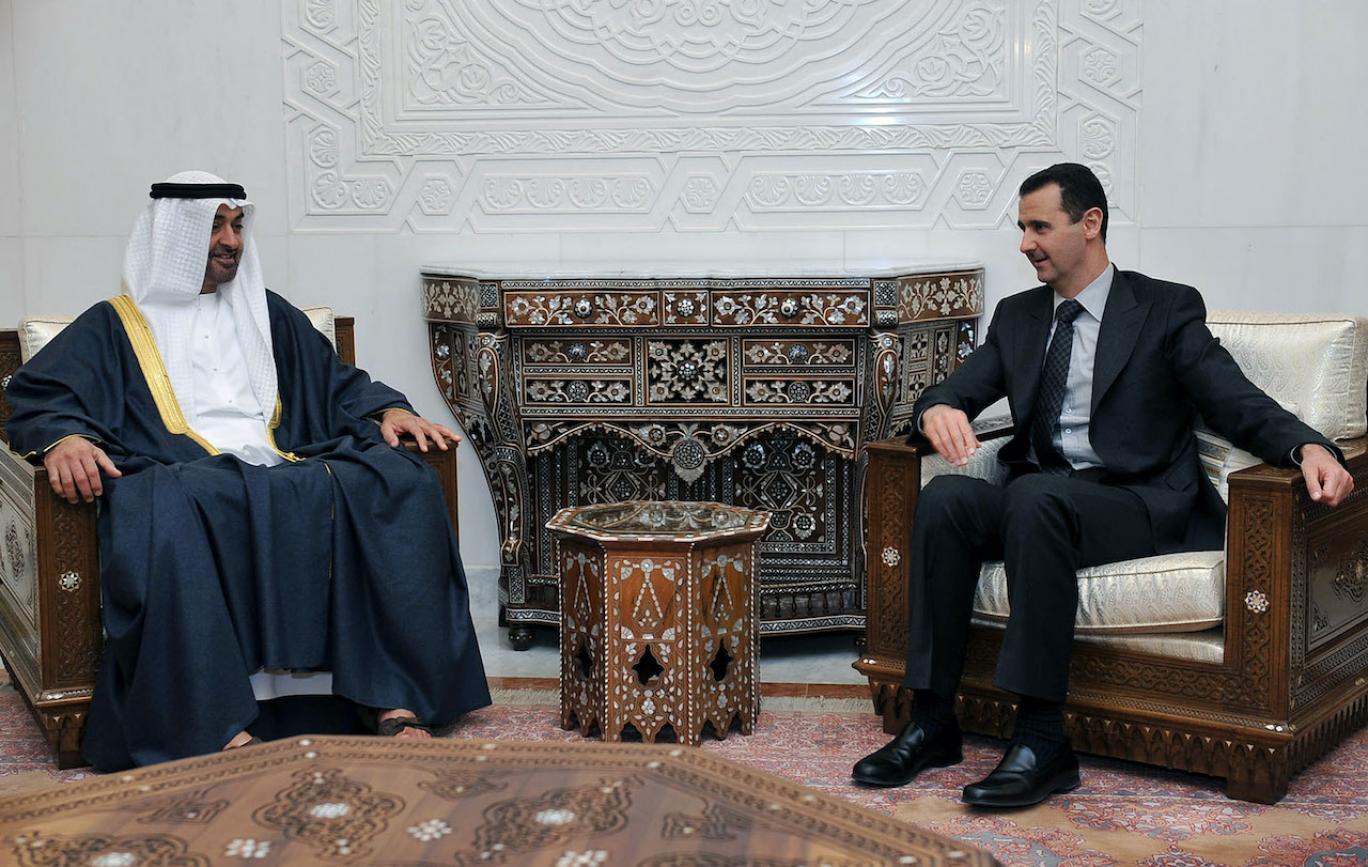In an interview with the website of the Strategic Council on Foreign Relations, Reza Mirabian, referring to the telephone call of Abu Dhabi Crown Prince to Bashar Assad after 9 years of obstructions against Syria, expressed solidarity with the Syrian people in the fight against the Corona disease. An improvement in relations between the two Arab states started two years ago, as we saw the opening of their embassy in Damascus. After that, there were occasional attempts by the two sides to open communication channels.
Noting that the UAE policy towards Syria is in line with Egyptian policy, he said: “One of the most important reasons for the joint stances between Egypt and the UAE, which can be observed in their approach towards Damascus, is their strong opposition to the Muslim Brotherhood.
In the current situation that Turkey supports the Brotherhood and terrorist movements in Syria, Egypt and the UAE, in opposition to the Muslim Brotherhood, are trying to pursue a policy of closeness to Syria.
UAE Stances on Syria, Yemen Modified
The West Asia analyst quoted Abu Dhabi crown prince as saying that Syria would never be left alone in the current difficult situation and citing his tweet said the issue of cooperation and assistance in the fight against Coronavirus was an excuse for the UAE to have sympathized with Syria and send some aid; otherwise, the change in the UAE’s policy towards Syria has long begun. After a series of events in the region, the UAE has generally made changes in their foreign policy, including on Yemen.
Commenting on some analyses that these kinds of contacts could be a prelude for Syria’s return to the Arab League, Mirabian emphasized: Improving Syria-Arab relations depends on future developments in the region, as the UAE and Egypt do not have an open hand in restoring their ties with Syria to the past level and they know they may face American pressure.
“They are trying, in the current situation, to modify some of their policy lines towards Syria in the light of what has happened in previous years, but to what extent these relations will change radically and substantially depends on the future developments and the circumstances of the US presence in Syria and the region.
Syria Has No Conditions to Improve Arab Ties
Referring to the remarks of the UAE Foreign Minister, who described the call of Mohammed bin Zayed Al Nahyan to Bashar Assad a brave move, the West Asian affairs expert said about the Syrian desire to forget the past and build trust between the Arabs and Syria: Under the current situation, both sides are looking for their maximum benefits. The Syrians have no reservations about improving relations with the Arab states, the UAE and even Saudi Arabia, but the point is that this improvement of relations would not be a policy aimed at renewed interventions in Syria and to create new provocations.
US Pressure Hampers Arab-Syria Relations
The Syrians have shown that they have no consideration or reservation for improving relations with the Arab states around them, The Americans do not want an improvement of relations between Syria and Arab states and are exerting pressures so that Damascus would not return to the Arab fold.
The Arab States Eventually Accept Syrian Regime
Mirabian emphasized: One should keep in mind that the Arab states eventually accepted the Syrian ruling establishment. They have acknowledged that the real situation of Bashar Assad today is not what was a year ago, 5 years ago or even 10 years ago. In fact, under the status quo that the Syrian government and ruling establishment dominate over 90% of the Syrian territory and have consolidated their sovereignty. it is the others who should come to Syria, not Syria going to them.
“In fact, this initiative on the part of the Emirates has been also observed in the policies of the Egyptians and other Arab states,” he said. Even the Saudis themselves have started secret talks with the Syrians, but have faced US pressures and restrictions that would not allow them to take independent decisions.










0 Comments